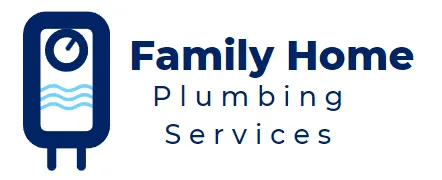Common Water Heater Problems: Troubleshooting Tips for Seaside
Maintaining a smoothly running household is crucial, and a key component of that is the water heater. We rely on it for our daily routines, and a breakdown can be a cold and inconvenient shock. This guide aims to help you tackle common water heater issues by providing an overview of troubleshooting tips. By addressing these issues promptly, you can ensure your water heater continues to function reliably and avoid any disruptions to your daily routine.
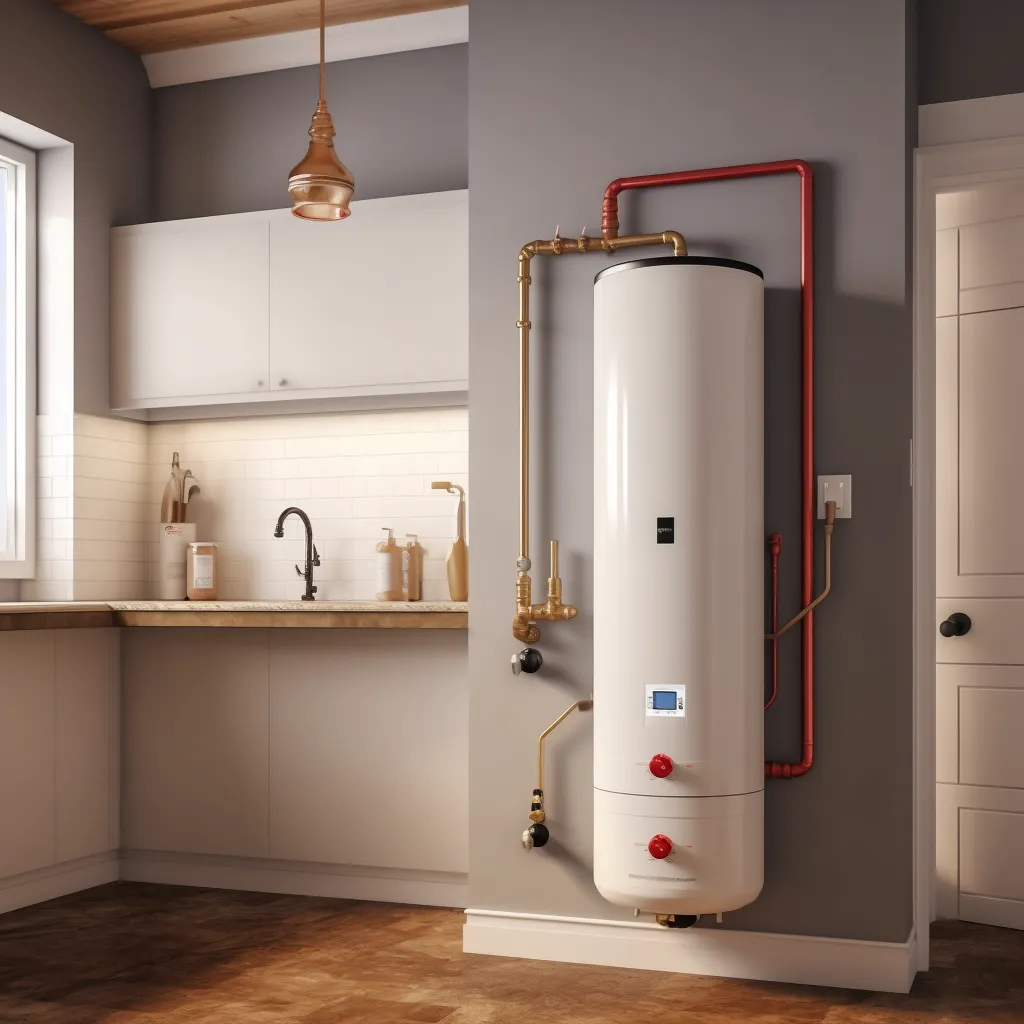
The tank is leaking
If you notice a leak in your water heater, it may be due to a faulty pressure relief valve or a corroded tank. Here are the steps you can take to address the issue:
Check if the pressure relief valve is functioning properly. If it is leaking or not releasing pressure as it should, it may need to be replaced. Consult the manufacturer's instructions or seek professional assistance to ensure proper replacement.
Thoroughly inspect the tank for signs of corrosion, such as rust or deterioration. If you notice any corrosion or damage, it is essential to replace the tank promptly to prevent further leaks or potential failures.

The water is discolored
Discolored water from your water heater may indicate the need for flushing and descaling.
Verify if the pressure relief valve needs replacement. A faulty valve can cause problems and may need to be replaced by a professional.
Use a mixture of white vinegar and water to flush the water heater. This can help remove sediment and mineral buildup, improving its performance.
Examine the anode rod for signs of deterioration or corrosion. If corrosion is present, it is advisable to replace the anode rod to prevent further damage.
If necessary, contact an expert to perform a thorough descaling treatment.

The water smells bad
When encountering tank problems in your water heater caused by bacteria buildup, take the following steps:
Have a professional inspect the tank to determine if it needs replacement.
Flush the water heater using a solution of white vinegar and water to reduce odors.

Noisy water heater
If you're hearing unusual noises from your water heater, it may be caused by sediment buildup or loose parts. Here's how to address these issues:
Flush your water heater: Regularly flush your water heater to control sediment buildup. This involves draining the tank to remove any accumulated sediment.
Inspect internal components: Contact a licensed plumber to inspect all internal components of your water heater. They will ensure that all parts are properly secured and tightened.
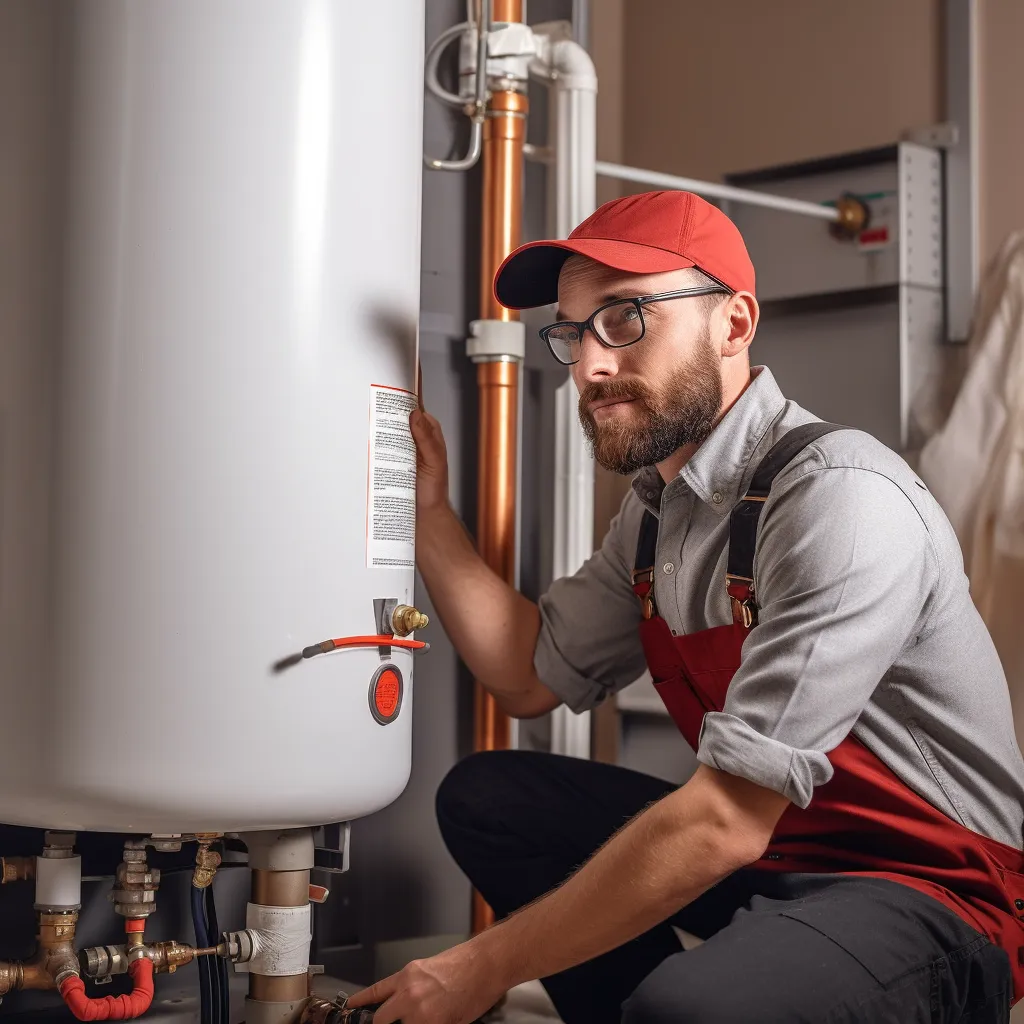

Tank takes a long time to reheat
If your tank water heater is taking an excessive amount of time to reheat, several factors could be causing the issue, such as a malfunctioning thermostat, an undersized tank, or mineral buildup. Here are steps you can take to address the problem:
Make sure the thermostat is set to the desired temperature. Adjust it if necessary.
If the water is not heating up as expected, a malfunctioning thermostat could be the culprit.
Have a professional inspect the tank for mineral buildup. Over time, minerals can accumulate and hinder the heating process.
If you frequently run out of hot water, it may be an indication that your current tank is undersized for your household's needs.
Low hot water pressure
If you're facing low hot water pressure, it could be due to a small hot water tank or a leaky plumbing system. Here are some steps you can take to resolve the issue:
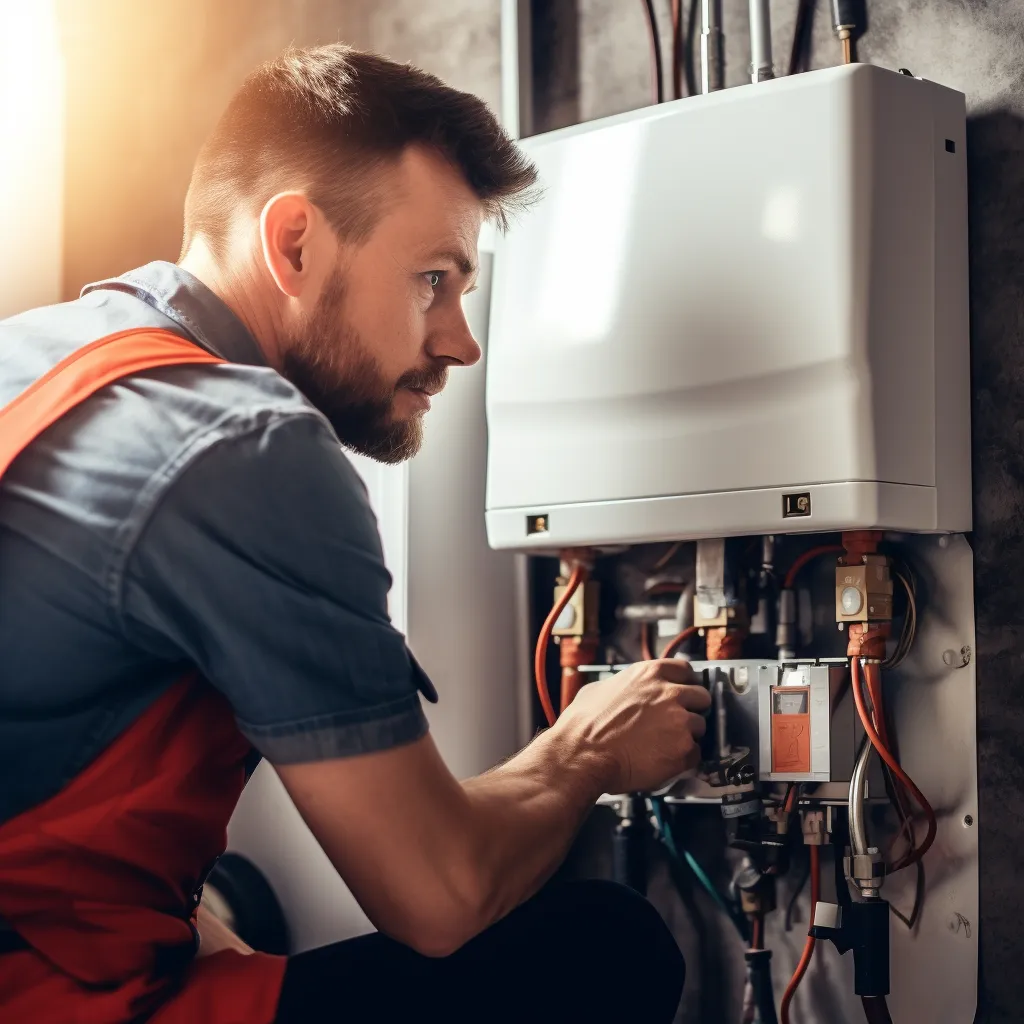
Ensure that your hot water tank is appropriately sized to meet the hot water demands of all the outlets in your house. If it is undersized, consider upgrading to a larger tank to improve hot water pressure.
Have a professional plumber inspect your plumbing system for any leaks. Leaks can contribute to reduced hot water pressure. If any leaks are detected, they can be repaired to restore proper water flow.
Check that the pressure relief valve is functioning correctly. This valve is designed to release excess pressure from the tank.

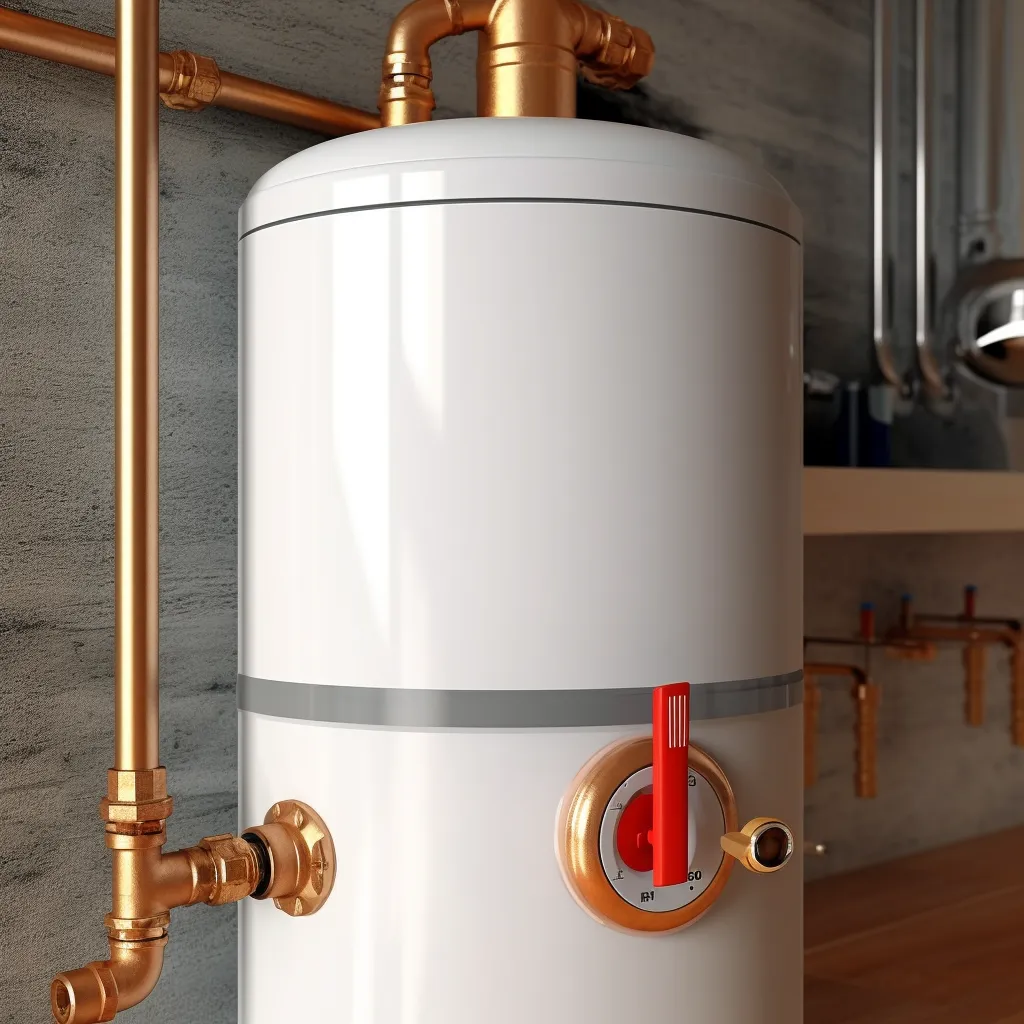
Low supply of hot water
If you're experiencing a low supply of hot water and notice that it cools down quickly, several factors could be at play, such as a malfunctioning thermostat, an undersized tank, or clogged pipes. Here are some troubleshooting tips to address the issue:
Check thermostat functionality: Verify that your water heater's thermostat is working correctly. Ensure it is set to the desired temperature and that it accurately controls the heating element.
Professional inspection and descaling: Have a licensed professional inspect your water heater.
Consider upgrading to a larger tank: If your current water heater tank is unable to meet your hot water demands, it may be undersized.
Ways to prevent future water heater problems
To prevent future issues with your water heater, you should:
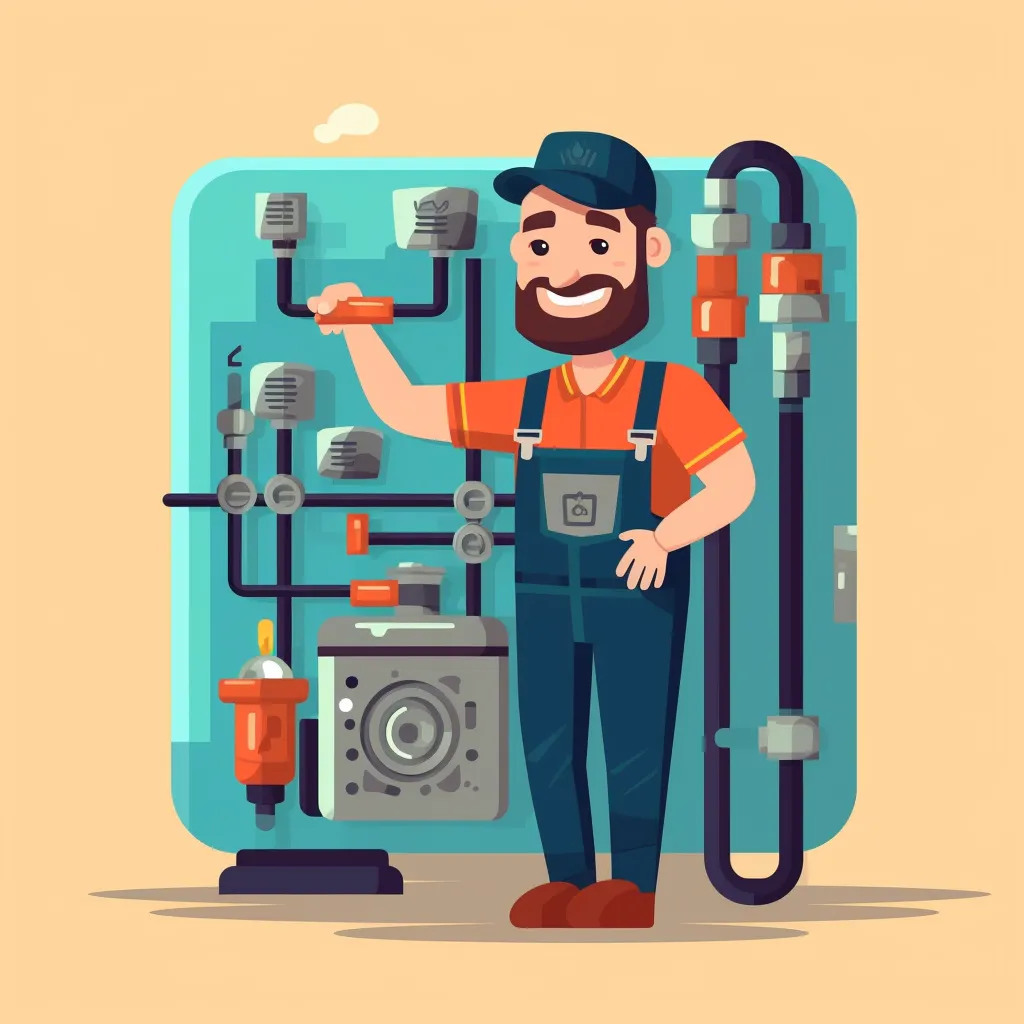
Periodically inspect your water heater for wear and corrosion.
Regularly flush out the tank to remove sediment buildup.
Check valves and fittings frequently for leaks.
Replace the anode rod every few years to prevent corrosion.
Schedule professional descaling or annual servicing.
Choose the appropriate water heater size for your needs.
Adjust the temperature to recommended settings.
Insulate pipes to minimize heat loss.
Consider energy-efficient models to reduce energy consumption.
Promptly repair any leaks.
Familiarize yourself with the location of the shutoff valve.

While it's recommended to contact a professional if you're unsure about repair or maintenance tasks, adhering to these basic steps can help you keep your water heater in optimal condition and prevent potential issues.
Know when to call
in a licensed plumber
While it's recommended to contact a professional if you're unsure about repair or maintenance tasks, adhering to these basic steps can help you keep your water heater in optimal condition and prevent potential issues.
What to look for in a licensed plumber
When selecting a licensed plumber, it's important to conduct thorough research and consider the following factors:

License and Insurance: Ensure that the plumber is licensed and insured to provide services in your area, providing you with peace of mind and protection.
Experience and Specialization: Look for a plumber with experience and specialization in water heater repair and maintenance, as they will have the necessary expertise to handle your specific needs.
Service Guarantees and Emergency Availability: Inquire about any service guarantees offered by the plumber. Additionally, consider their availability for emergency situations to ensure that you can rely on their assistance when needed.
Effective Communication: Opt for a plumber who communicates effectively and clearly explains the work being performed. This ensures that you have a clear understanding of the services provided and any necessary repairs or maintenance.
Reach out to an experienced professional
When you encounter problems with your water heater, there can be various underlying causes. However, it is advisable to have a licensed plumber inspect the unit for a reliable and long-lasting solution. By following these suggestions, you can address water heater difficulties and maintain a smoothly running household. If further assistance or advice is needed, don't hesitate to contact an experienced plumber who can assess your water heater and recommend effective solutions to restore its functionality.
Contact Us
GET IN FULL TOUCH
PHONE: (831) 604-3132
EMAIL:
Gregory@waterheaterseaside.com
Family Home Plumbing Services
Seaside, CA 93955
